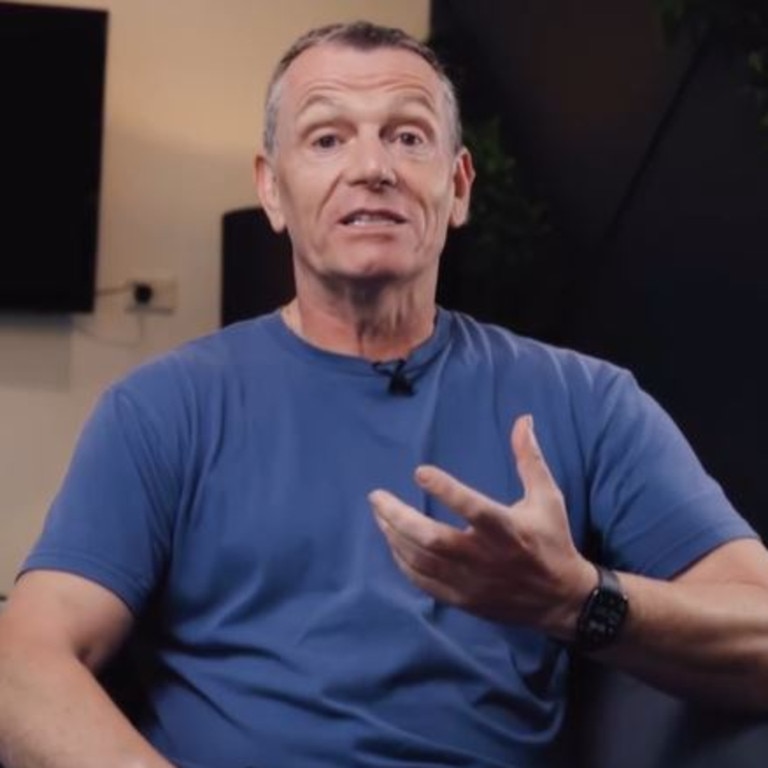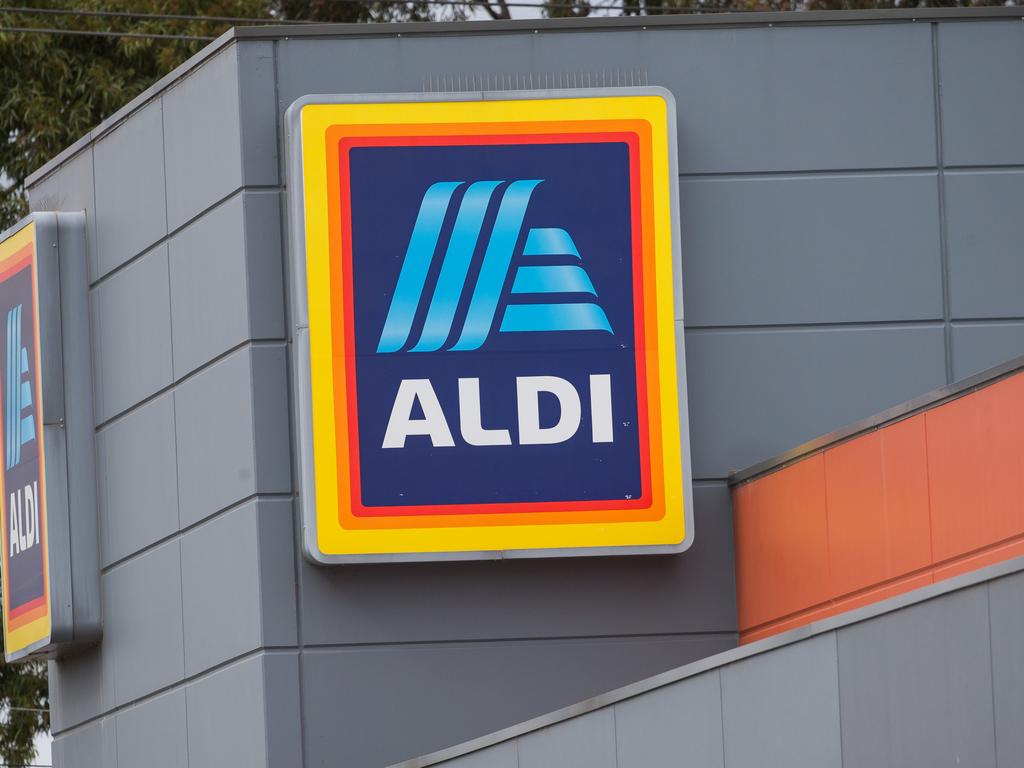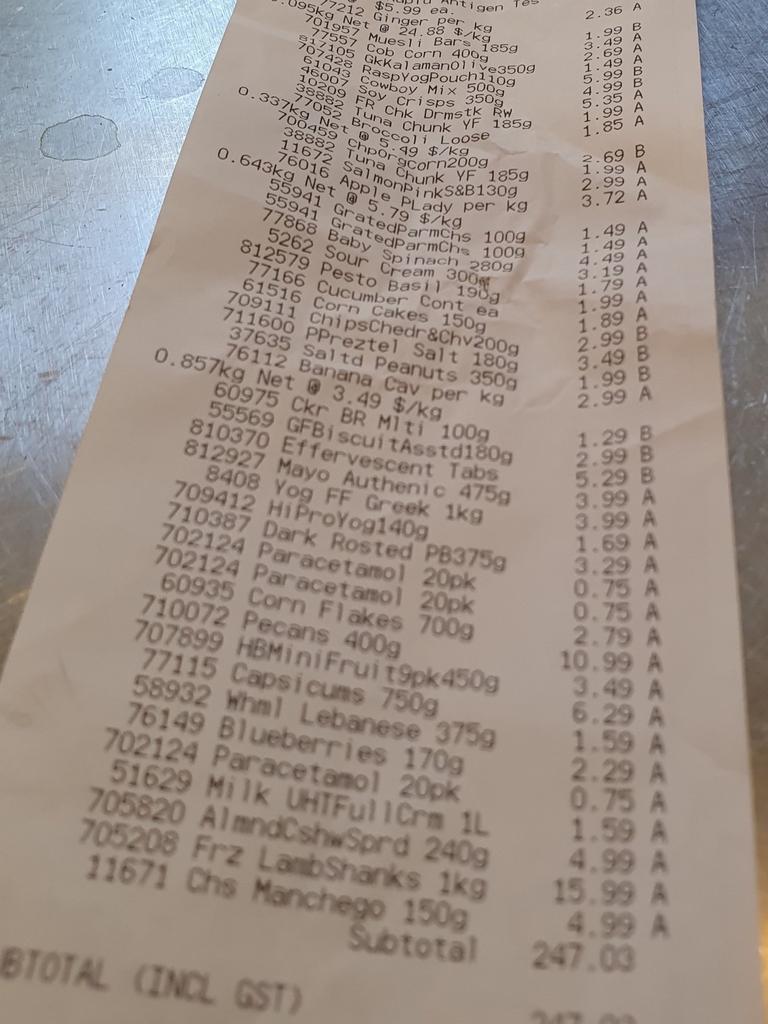NZ and UK grocery prices prove Australia isn’t as expensive as you think
A Sydney financial psychologist has confirmed a hard truth about Australia that many of us will struggle to accept.
New Zealand’s “chronically high” grocery prices have exposed an uncomfortable truth about Australians: we are bad with our money.
The revelation comes after Kiwi father, Poreva Kirikava, who was once living pay cheque to pay cheque broke down in tears at an Aussie Aldi store, claiming the prices here are much cheaper than in his home country.
Recent data supports his experience. Researchers at Edith Cowan University compared the prices of common grocery items in leading supermarkets in Australia, the UK, Ireland and New Zealand and found the latter was “the most expensive place to buy the items”.
The UK was determined as the cheapest.
But while Associate Professor Flavio Macau, who analysed figures on 44 staple items, said the “situation is a lot better elsewhere” – some finance experts warn Australia cost of living isn’t as high as you may think.

“In general Australia is not as expensive as people think and the cost of living crisis is a beat-up which gives people an excuse not to look at their own finances in great detail,” Max Phelps, the Founder of Golden Eggs and author of Getting Your Money $hit Together, told news.com.au.
“Psychologically we make most of our spending decisions without thinking and when we find we’ve spent too much, tend to look for quick, easy answers, rather than go through the detail of where our money has actually disappeared to.”
Conversation about how Australians handle their money erupted after Mr Kirikava went viral after being left “speechless” by his first grocery shop since moving from Auckland to Sydney.
“It’s day one in Australia and I am so overwhelmed. I cried after I did the food shopping,” he said in a video.
“I’m not even joking, I bawled my eyes out. Because in New Zealand there were moments when we thought we weren’t going to eat.”
He said his family’s grocery haul, which included a dozen eggs, a whole chicken, and packs of Maggi noodles, totalled $380 — an amount that he believes would have cost him about$1000 in New Zealand.
“It was unbelievable. I freaked out because in New Zealand a normal shop was $200 to $300 for a family of five and that’s just the first few days, not to mention running out of milk and butter and bread,” he said.
“Whereas here, we got meat, fruit, veg … I got back to the car after buying that many groceries and it was overwhelming.
“My wife and I were speechless and I literally started crying because I just felt like I could afford things now.”
But Mr Phelps said there are a lot of factors to consider when comparing supermarket costs between the two sister nations.
“When it comes to NZ vs. Aus, then NZ does not have Aldi, which makes a huge difference, because you’re effectively going from branded goods to own label,” he explained.
“Own brand products are also available in NZ, but are less popular in the major branded stores like Woolworths [known as Countdown in New Zealand].”

The Edith Cowan University study, published in October, also exposes another factor to consider – that average wages of workers are different between the countries.
When adjusting for wages, Australia’s grocery prices go from being the second most expensive of the four nations studied, to being on par with the UK – which had been found the cheapest of the four.
Both Australian and UK shoppers spent about 13 per cent of their wages on groceries, which includes food and non-food items, Dr Macau told the ABC.
“Anything made, or grown locally is likely to be similarly priced, eg bread tends to be made locally and is actually cheaper in NZ than Australia,” Mr Phelps told news.com.au.
“Beef is cheaper in Australia, but lamb is more expensive, compared to NZ.
“Branded goods are similarly priced on both sides of the Tasman, but again it depends on where they are made. Anything imported to NZ will be more expensive, both because it’s further away than Australia, but also because quantities imported tend to be smaller.”
The money coach, who specialises in the psychology of finances to help educate clients, added that “compared to Europe, our basic cost of living is way cheaper in Australia, giving us significantly higher disposable income”.

Anecdotally, this sentiment is shared by some online, including one British expat who recently shared a video titled “You can’t convince me Australia is expensive”.
In the since deleted clip, the young woman – who travelled the east coast for the last 12 months, described how everything aside from rent proved “much cheaper” than back in her home country.
However she countered that by explaining her wages were higher in Australia, where the National Minimum Wage is 24.10 per hour and is paid regardless of your job or industry.
In comparison, the UK’s minimum pay structure is dependant on age and experience, with apprentices and under 16’s taking home £6.40-an-hour (about $A 13) while those 18 to 20 snag £8.60 ($A 17.25). Anyone over 21 is awarded £11.44-an-hour ($A 23).
The minimum wage in NZ is currently $23.15, which converts to just under $21 Australian dollars.
Another British expat who currently lives in Melbourne also recently claimed her groceries here are “cheaper” than back home.
Georgia Davis recently showed off her Coles haul on TikTok, revealing she took home bananas, coconut yoghurt, cheese, eggs, wraps, tofu and an array of vegetables for under $100.


But while she, just like Mr Kirikava, concluded it was more affordable to buy food here compared to their native countries – Aussies in the comments of their videos disagreed.
“Australia heaps more expensive,” one argued.
“NZ must be hella expensive because Aussie grocery prices are through the roof,” another agreed.
“It’s pretty sad that you think our Aussie prices are cheap. I think most Aussies would say they are crazy high,” mused someone else.
Technically, Australians aren’t wrong. Statistics show that since March 2020, the price of food has risen more than 17 per cent for working households.
However, most Kiwis agreed with Mr Kirikava that comparatively, groceries and the cost of living was more manageable on this side of the Tasman Sea.
“I tried moving back to NZ after being in Aus for 8 years, I lasted a year because it was just so hard to survive,” one stated.
“I’m a hardcore Kiwi but Aussie is my home now I’ll never live in NZ again,” another added.
With figures showing Kiwis heading to Down Under in record numbers – 40,000 set up home here between 2022 and 2023 – it shows our neighbours believe Australia really is the Lucky Country.






